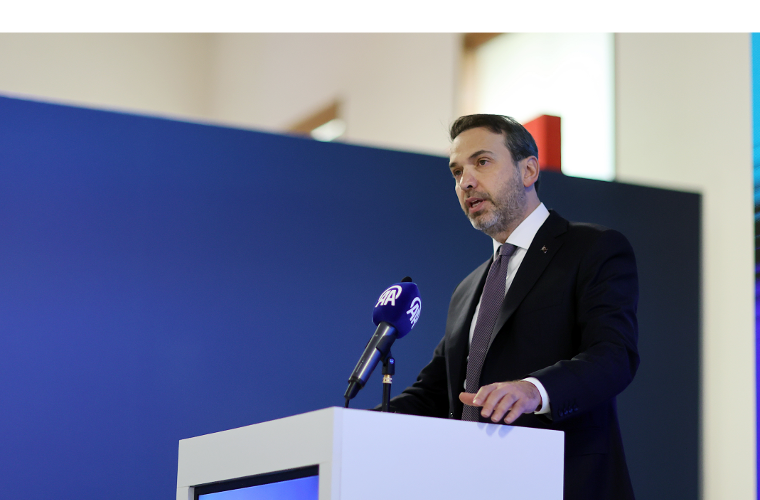Türkiye to ink deal with Azerbaijan for electricity trade
Turkish Electricity Transmission Corporation (TEIAS) and Azerbaijani electricity power company AzerEnerji to sign roadmap deal

Türkiye and Azerbaijan will sign a roadmap agreement later on Friday to build infrastructure for an electricity interconnection project, according to Alparslan Bayraktar, the Turkish minister of energy and natural resources said Friday.
Turkish Electricity Transmission Corporation (TEIAS) and the Azerbaijani electricity power company AzerEnerji will sign the roadmap deal, which hopes to further alleviate the bottleneck in energy supplies caused by the global energy crisis.
At the third Azerbaijan-Türkiye Energy Forum in Nakhcivan, Bayraktar said that Türkiye and Azerbaijan would take an important step for technological cooperation in electricity, allowing both to share their know-how.
According to Bayraktar, Azerbaijan and Türkiye’s exemplary cooperation has allowed them to navigate through the challenging times of the crisis without incident.
The interconnection deal builds on the existing cooperation between Azerbaijan and Türkiye in the field of natural gas.
“We will continue to work together for the security of Europe's natural gas supply as well as for global oil markets,' Bayraktar said.
Gas from Azerbaijan to Europe is transmitted via Türkiye through the Trans Anatolian Pipeline (TANAP), which connects to the bloc's Trans Adriatic Pipeline (TAP), supplying gas from Greece to Italy.
TANAP transports 16 billion cubic meters (bcm) of gas annually, 6 bcm of which is offset for Türkiye and 10 bcm for Europe. It originates at the Georgian-Turkish border, travels 1,811 kilometers (1,125 miles) through 20 provinces, and connects to TAP at the Greek border.
Work on pipeline expansion is currently underway to increase its capacity to its maximum, which was originally designed to deliver 32 bcm.
Türkiye aims to meet its growing energy demand, reduce dependence on energy imports, and achieve carbon neutrality by 2053.
To this end, Bayraktar said that a major energy transition is necessary, which will be only possible through more responsive, flexible policies along with bilateral and multilateral cooperation.



